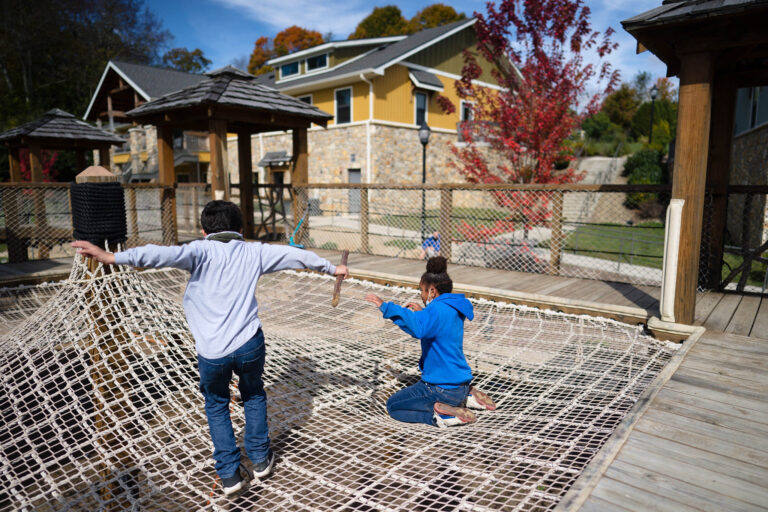“I could never do that.” It’s the response I probably get more than any other when I tell people I work in foster care. Foster parenting can sound big and scary. And we often think of it as something that other people do– the superheroes or the saints.
I’ve had the honor of knowing and working with many, many foster families over the years. And they are incredible people. And also human people. People with job stress, other kids they’re raising, family struggles, and their own histories of hard times. Incredible, generous people who are willing to open their homes and their hearts even though it isn’t easy. Like all of us, foster parents will have incredible successes… And foster parents will also make mistakes. Foster parents are humans, like all of us, willing to be a part of something extraordinary.
If you are open to the extraordinary, foster parenting might just be right for you, too.
Whether we can be foster parents right now or not, though, we can embrace a communal perspective that foster care impacts OUR community. The biological families separated by foster care are OUR families. The children and youth in foster care are OUR children and youth. We all have a part to play. So how do you know if YOUR part is to take the leap of becoming a foster parent? A few questions to ask yourself that might help you decide.
What is my motivation?
 There are a lot of reasons that people consider foster care. Whatever initially piques your interest is OK! It might be that your children have moved out of the house and you have more space and time to offer. It might be that you’ve faced fertility challenges. You know you want to share your life with children, but it’s not going to happen the way you thought it would. Maybe you have some kind of personal connection to the foster care system– you or someone you love was in foster care. You’ve seen what it’s like first hand and you know you could make a difference.
There are a lot of reasons that people consider foster care. Whatever initially piques your interest is OK! It might be that your children have moved out of the house and you have more space and time to offer. It might be that you’ve faced fertility challenges. You know you want to share your life with children, but it’s not going to happen the way you thought it would. Maybe you have some kind of personal connection to the foster care system– you or someone you love was in foster care. You’ve seen what it’s like first hand and you know you could make a difference.
There are lots of reasons that it might cross your mind. But the reason that we follow through with foster parenting has to be about the children, youth, and families that foster care is designed to support. And not our own needs. When I place my own needs and expectations on a child or their family, I am asking them to carry a burden that isn’t theirs to carry. On top of that, I am setting myself up for disappointment. I’m asking them to be the person I imagine them to be and not the person that they are.
As much as we can, our job is to open our homes and our hearts to the young people and their families–as they are–and to walk alongside them in their healing. That might mean they are in your life for just a few days while the family stabilizes their living situation. That might mean that some children or youth live with you for years, and then finally, FINALLY, get to go home. Or maybe they aren’t able to go back with their parents after all. They need your help to learn to live in a different family or to learn to live as an adult in this world.
In some places, foster parents are also known as “resource parents.” I think that title captures the task well. You become a foster parent to be a resource and support to someone else. Whatever that looks like.
If the well-being and healing of children and families is close to your heart, then foster parenting might be right for you.
How do others in my home feel about fostering?
 If you are not the only person in your household, you are not the only person that would be fostering. Spouses, partners, parents, siblings, children, friends… anyone living in your home (and in your circle of support!) is going to have an impact on the young people who come to stay with you. Children know when they are not wanted.
If you are not the only person in your household, you are not the only person that would be fostering. Spouses, partners, parents, siblings, children, friends… anyone living in your home (and in your circle of support!) is going to have an impact on the young people who come to stay with you. Children know when they are not wanted.
Becoming licensed for foster care is a labor-intensive process, not just for the foster parents but for every person in the household. There are background checks, interviews, medical exams, and other assignments that every person has to comply with. And that’s just the logistics. Adding any new person into a home is going to stretch everyone. It will be exciting and fun and meaningful, and it will also be hard. Everyone in the home needs to share a commitment to this role of “foster family” so that when things are difficult, you all can pull together and support each other. Families who are not in agreement about providing foster care risk blaming each other for hardships, hurt, and long-lasting damage to relationships.
Have open, honest conversations with those in your home about adding children in foster care to your home. Talk about the possible impacts on everyone’s daily lives. If everyone is ready and willing to make the commitment, even when it’s tough, then foster parenting might be right for you!
What level of flexibility do I have?
Many, many Crossnore families are single working parents or two parent homes where both parents work. It can be done! It will also be really helpful to have a supportive and understanding employer for when time off is needed or when meetings/appointments must happen during the work day, which will be somewhat regularly.
What am I expecting from a child or youth placed in my home?
 Being involved in the foster care system is usually, in itself, a traumatic experience. Being separated from your family and forced to live with strangers is something that causes immense stress to the brains and bodies of young people. This is often on top of a number of other traumatic experiences or after years of living under chronic stress.
Being involved in the foster care system is usually, in itself, a traumatic experience. Being separated from your family and forced to live with strangers is something that causes immense stress to the brains and bodies of young people. This is often on top of a number of other traumatic experiences or after years of living under chronic stress.
Trauma takes a toll. Foster parents need to be prepared to recognize trauma-based behaviors and to respond in ways that help the child heal. Trauma history shapes our worldview and sends constant signals that the world is not safe. Your gestures of kindness may be met with suspicion, disdain, or aggression. Children and youth have had to learn to survive, often in hostile circumstances. They are responding in the ways that they have learned are most protective for them. It is unusual that a young person immediately feels safe or loved in your home. So any expectation that they are grateful to you or feel happy to be in your home may fall short of reality.
If you can see the world from the eyes of a child who’s been through trauma and offer lots of patience and understanding, then foster parenting might be right for you.
How do I handle partnering with other professionals and organizations?
As a foster parent, you become a partner in the child and family’s support network. You will work in collaboration with your licensing agency (an organization like Crossnore), the Department of Social Services that has taken custody of the children, and several other professionals all working together to surround the family with resources and support. Foster parents do the daily work of caring for young people in their homes, but do not have the final authority on making decisions for those children or youth. Foster parents will be asked to regularly communicate with, meet with, and coordinate with professionals. As with any supervisory relationship, Crossnore will provide guidance and feedback to foster families and encourage them in their professional development.
If you enjoy being a part of a team and you are committed to ongoing learning and growth, then foster parenting might be right for you!
Do I meet the criteria?
In the state of North Carolina, foster parents must:
- Be 21 years old
- Have stable housing
- Have fewer than 5 children in the home
- Have stable income
- Have no recent significant criminal history
- Maintain a drug-free environment
- Be in good physical and mental health
- Complete required training
- Have a favorable home assessment
 Remember: Foster parents are not expected to be perfect people. Don’t let something from your past stop you from reaching out to talk to our Crossnore Licensing team! In general, foster parents must be in a stable place in their lives where they can focus on the wellbeing needs of any children added to their home. If you meet the eligibility requirements and are in a stable place, foster parenting might be right for you!
Remember: Foster parents are not expected to be perfect people. Don’t let something from your past stop you from reaching out to talk to our Crossnore Licensing team! In general, foster parents must be in a stable place in their lives where they can focus on the wellbeing needs of any children added to their home. If you meet the eligibility requirements and are in a stable place, foster parenting might be right for you!
Foster parenting isn’t right for every person or family, and may not be the right thing at every stage of life. You might have another part to play that is just as needed! Reach out to our Foster Care Licensing team at Crossnore today to talk more about becoming a foster parent or a foster parent support. We are always happy to answer any questions you have and help you find what your role is in helping children and families.



